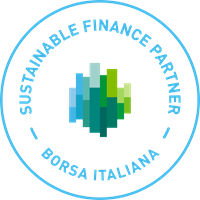Corporate sustainability, along with the practices inherent in Corporate Social Responsibility and broader ESG issues, is the subject of numerous debates and represents priority topics within economic, political and social discussions.
As the adoption of sustainable practices can offer competitive advantages, it is becoming increasingly crucial to integrate social responsibility and environmental sustainability, demonstrating their application throughout the supply chain.
The integration of Environmental, Social, and Governance factors into business operations starts with an essential element: the choice of communication strategy to be adopted.
Choosing the wrong, false or misleading ESG communication integrates the conduct of greenwashing: behavior that risks damaging a brand’s corporate reputation, trustworthiness and seriousness in the eyes of investors, suppliers and end consumers.
In this article, we delve into why greenwashing falls squarely within business risks.
Greenwashing along the entire supply chain.
Integrating ESG factors into business operations implies adopting a sustainability-oriented approach that extends to all areas of the business; this translates into practices related not only to one’s own sphere of operations, but inherent to the entire supply chain.
As widely held as many business leaders now are about the importance of promoting sustainability, ESG principles and sustainable actions are often not effectively integrated throughout the supply chain, creating a discrepancy between highlighted strategic intentions and actual actions.
This problem is most evident in the behavior of subcontracting companies, often located in developing countries, that produce goods on behalf of large multinational corporations.
It is precisely along the supply chain that the phenomenon of greenwashing finds one of its most fertile grounds, as evidenced by rather striking past case studies on the subject.
An emblematic example is the case of Neste, the leading Finnish oil company producing sustainable biofuels, whose palm oil suppliers, based on data from the study conducted by Friends of the Hearth, cut down 10,000 hectares of forest between 2019 and 2020.
Practicing greenwashing is a business risk in its own right
The main danger for a greenwashing company lies in the decrease of consumer confidence.
Consumers always tend to prefer companies that declare a sustainable commitment concretely supported by concrete actions.
A deceived consumer is unlikely to regain trust in the company, and the harm suffered will be greater than the benefit the company would have gained had it not been discovered.
False claims of sustainability or environmental commitments are a strong disincentive to purchase a brand.
In the financial sector, the European Securities and Markets Authority (ESMA) has pointed out that greenwashing harms investors who wish to invest in sustainable economic activities; disclosure of untrue sustainability profiles could be misleading and unfair, amounting to a misleading practice in selling or pricing.
Just as with the supply chain, greenwashing can also relate to different stages of the value chain of an investment, for example, it may relate to the placement stage of a financial product:
- Because issuers’ statements convey an untrue picture of the ESG factors underlying the product;
- Because the quality and quantity of data are not certifiable or sufficient to enable proper analysis of companies to invest in from a sustainable point of view.
The risks to greenwashing companies and the financial players who support them can be divided primarily into three categories:
- reputational risk, for damage to corporate image and reputation in the eyes of investors, suppliers and consumers;
- Legal risk, related to penalties under sustainability policy regulations;
- financial risk as a result of legal fees, penalties received and loss of market share.
Greenwashing poses a real risk to the credibility of the market as a whole and to the confidence of participants, including companies, investors and consumers.
At a time when there is a strong interest in sustainability, greenwashing fuels skepticism about any statement on ESG aspects.
Preventing greenwashing with an ESG communication strategy
Communicating sustainability properly and adopting the right strategy to convey ESG commitment externally are key points for companies that want to prevent risks from greenwashing.
Relying on the support of experienced professionals is the key to successful ESG communication.
Work out your ESG communication strategy with us,
Let’s build a sustainable and future-oriented business paradigm together.


